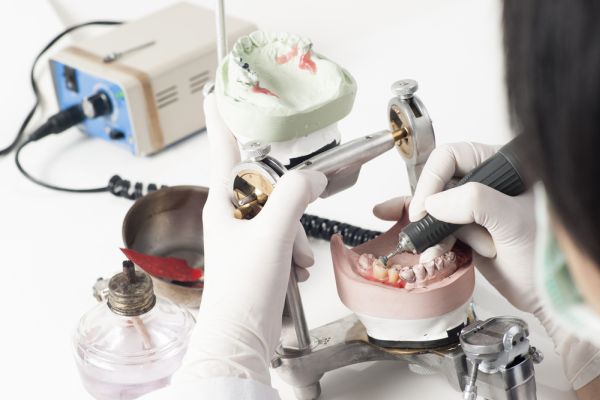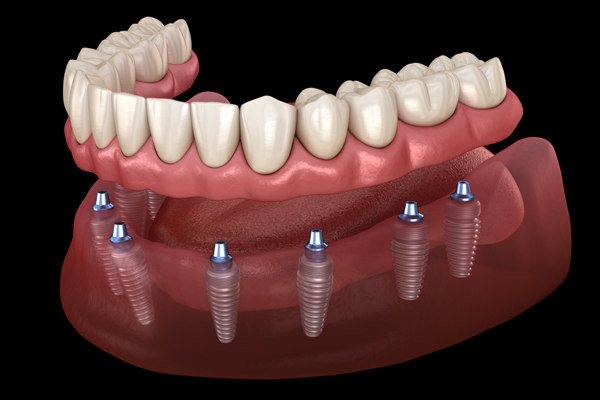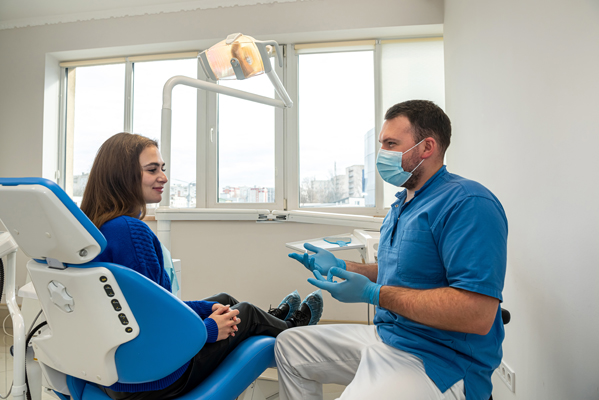Dental Crowns: Facts on the Procedure and Pain

Restoration of a damaged tooth can be achieved through a variety of procedures, but the most common is that of dental crowns. While this procedure has been around for some time, dentistry has continued to evolve. Now, dental crowns are more modern than ever.
When considering receiving dental crowns as a way to restore or repair a damaged tooth, it is best to be well informed beforehand so there aren’t any surprises. In this article, we will discuss facts about the dental crown procedure. We also address the pain that can be involved with dental crowns. Keep reading to find out everything that is important to know!
Dental crowns: Facts on the procedure
Want to know what to expect from a dental crown procedure? Below, we outline a few important facts.
What is a dental crown?
While a dental crown procedure does involve placement of an artificial crown, the term "dental crown" actually originates from the crown of the natural tooth. The crown of a tooth is the part that is visible to the eye: above the gum line on the top teeth and below the gum line on the bottom teeth.
The actual dental crown procedure involves an artificial cemented dental restoration that will either partially or completely cover a person’s tooth, depending on the area of damage. Dental crowns are also referred to as caps.
Dental crown material options
Thanks to technology, there are now many types of dental crowns that a person can choose from. Typically, impressions will be made, and they will be sent to a dental lab so that a technician can custom-create the crown. A week or so later, the crown can be placed.
The metal or gold dental crowns are still available for someone looking to go the traditional route. Composite dental crowns are another option that a lot of people consider, mostly because they are white in color, thus matching the tooth. Some dental offices even offer CAD/CAM technology, which is a dental crown produced in-office on the same day. CAD/CAM can use composite dental crowns as well.
The procedure
During the dental crown procedure, a dentist will remove any damaged areas of the tooth and then shave it down accordingly. A temporary dental crown will be placed until the permanent one has been created by the dental lab.
The patient will be numbed during the procedure so pain isn’t felt. However, there may be sensitivity or irritation after the procedure is complete. The interior portions of the tooth may experience slight discomfort from the shaving part of the procedure. The gums may also experience irritation.
Reach out to us today!
If you have questions about dental crowns, then reach out to our office so that we can help you further. Let our trained professionals go over the dental crown procedure with you. Give us a call or stop by our office!
Request an appointment here: https://sexton-dental.com or call Sexton Dental at (740) 363-2080 for an appointment in our Delaware office.
Check out what others are saying about our services on Yelp: Read our Yelp reviews.
Recent Posts
For patients missing most or all of their teeth, implant-supported dentures provide a stable, natural-looking way to restore a full smile. This approach anchors a custom denture to dental implants placed in the jawbone for improved support. Within this category, patients often choose between fixed and removable designs. Understanding how each option works helps patients…
Dental bonding is a simple and effective way to make immediate improvements to the smile by covering stains or fixing small chips, cracks, and gaps in the teeth, providing immediate improvement. The process is painless and quick and does not require major changes to the natural teeth. Those looking for an easy and affordable way…
Dental implants can potentially survive a lifetime of use; however, the implant crowns used for chewing and biting are vulnerable to the same factors that can damage natural teeth. Therefore, it is important to take proper precautions to extend the crown's lifespan.The following are tips to add more years to an implant crown and reduce…
General dentists provide essential care to support oral health at every age, including well into adulthood and throughout the golden years. The goal is to help keep the smile in good shape so that it stays healthy, comfortable, and functional. Dental professionals can also address age-related oral health concerns, keeping you on track for a…


